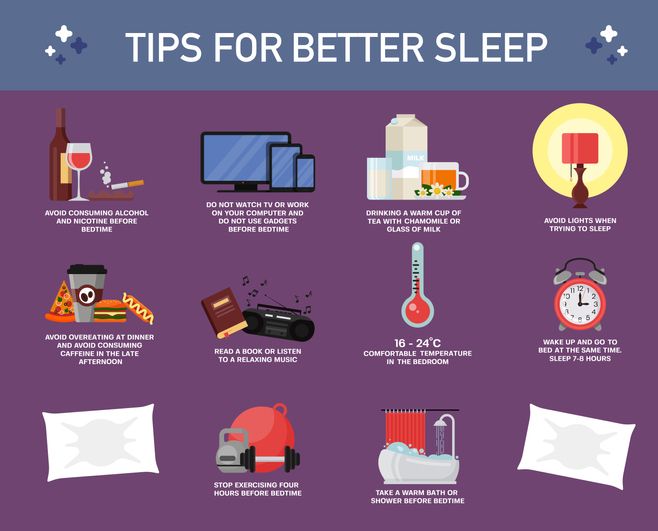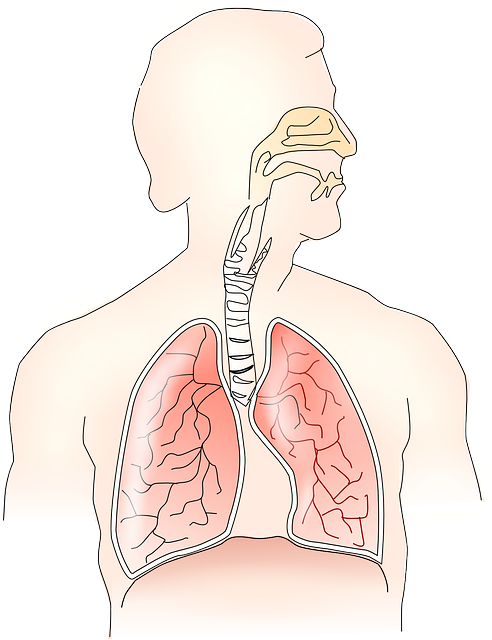Snoring Guide
Snoring may appear insignificant, merely a minor inconvenience to your significant other. You might be unaware that it’s happening. Nevertheless, snoring could indicate a more severe problem.
In this comprehensive throat cleaner and remedies blog post, we’ll examine the typical causes of snoring, explore its potential complications, and consider various treatment alternatives. If you need more throat remedies then check out our Sore throat remedies and 13 best herbal teas for clearing your throat articles!

- New Report Says Your Brain Could Be the Key to Reducing Phlegm Over 50
- Doctor's "Leave The Throat Phlegm Behind" Tutorial Goes Viral With People Over 50
- Can You Relieve Throat Phlegm and Coughing In 60 Seconds A Day? This Doctor Says Yes
- How To Banish Phlegm When 50+ (Do This Every Day)
Short Summary
- Occasional snoring is common, with causes that include poor posture, nasal congestion, sleep position, being overweight, sex, and age.
- Anti-snoring pillows and other devices can help reduce snoring.
- Seek medical attention for persistent snoring, especially if the snoring is loud, as this could indicate obstructive sleep apnea.
What is snoring?
Snoring is the grating, loud, rattling noise made when air passes through relaxed throat tissues, causing them to vibrate while you breathe.
During sleep, your throat muscles naturally relax, causing your tongue to move backward and your throat to narrow. Any obstruction at the back of your mouth or nose can worsen the narrowing of your airway and cause vibrations in your throat muscles, resulting in the familiar snoring sound.
While it’s common for most people to snore occasionally, for some, it can become a chronic issue that disturbs their partner’s sleep and potentially signals a sleep disorder that can negatively impact overall health.
Prevalence of Snoring
Snoring is a widespread issue.
The Sleep Foundation reports that snoring affects an estimated 57 percent of men, 40 percent of women, and 27 percent of children in the United States (1). This equates to roughly 145 million individuals.

Causes of Snoring
As various factors cause snoring, you need to discover why you snore. Understanding the cause of snoring can lead to practical solutions for better sleep quality for you and your partner.
The factors that contribute to snoring include:
- Being older: As you age, your throat narrows, and the muscle tone decreases. Poor muscle tone in the throat increases the likelihood of snoring for the middle-aged and older crowd.
- Overweight or obesity: Carrying excess weight increases the size and density of neck tissue, which can narrow the airway and lead to or worsen snoring.
- Sex. You may have heard that men are more likely than women to snore, and the statistics above show an undeniable sex difference when it comes to snoring. Why does sex matter? It is a known fact that men have narrower air passages than women, which makes them more susceptible to snoring.

- Nasal congestion or other obstruction: It’s common for some individuals to snore only during allergy season or when they’re experiencing a sinus infection. Additionally, issues in the nasal area, such as a deviated septum (where the wall that separates one nostril from the other is misaligned) or nasal polyps, can obstruct airways and cause snoring.
- Long soft palate and/or uvula: (The soft palate is at the back of the roof of the mouth, and the uvula is the dangling tissue hanging in the back of your mouth.) If either or both is too long, it can restrict the opening from your nose to your throat. As a result, when you breathe, they may vibrate and collide, leading to a blockage in your airway.
- Sleep position: When you sleep on your back, the tongue can flop back towards your throat, causing snoring. Additionally, the type of pillow you use may also make a difference in whether you have a good night’s sleep or whether it’s disrupted sleep. Specifically, pillows that are too large or soft have been shown to increase the incidence of snoring.
- Pregnancy. During pregnancy, you may experience weight gain, increased blood flow, and hormonal changes that could lead to snoring. Although excess weight is commonly associated with snoring, hormonal and blood flow alterations may cause nasal passages to swell, making breathing difficult while lying down. As your pregnancy advances, snoring may become more frequent and severe, reaching its peak in the final trimester.
- Using muscle-relaxing substances: Cigarette smoking, alcohol consumption, and specific medications, such as Xanax and other tranquilizers, can relax the throat and increase the likelihood of snoring.
- Getting too little sleep. Not getting enough sleep can lead to excessive relaxation of your throat muscles, thus causing you to snore.
Types of Snoring: When is it Dangerous?
Determining the danger of snoring depends on its type, frequency, and severity (2).
- Infrequent, soft, or light snoring: Gentle, occasional snoring that does not annoy others is normal and does not usually warrant diagnostic testing, the usage of sleep-assisted devices, or other treatments. It primarily affects housemates, who may be occasionally irritated by the snoring sound.
- Primary snoring: If your snoring occurs more than three nights per week, it may disrupt your partner or housemate’s sleep. This is known as primary snoring and should not be a significant health concern unless there are accompanying sleep disruptions or sleep apnea, which may require diagnostic testing.
- Snoring associated with obstructive sleep apnea: Excessively loud and treating snoring that springs from sleep apnea is more serious and may have severe implications on one’s sleep and overall health if left untreated.

Infographic Text
Tips for Better Sleep
Avoid consuming alcohol and nicotine before bedtime.
Do not watch TV or work on your computer and do not use gadgets before bedtime.
Drinking a warm cup of tea with chamomile or glass of milk.
Avoid lights when trying to sleep.
Avoid overeating at dinner and avoid consuming caffeine in the late afternoon.
Read a book or listen to a relaxing music.
16 to 24 degrees Celsius, comfortable temperature in the bedroom
Wake up and go to bed at the same time, sleep 7 to 8 hours.
Stop exercising four hours before bedtime.
Take a warm bath or shower before bedtime.
End Infographic Text

Snoring vs. Obstructive Sleep Apnea
Obstructive sleep apnea (OSA) is a serious sleep disorder that affects a person’s breathing during sleep. It occurs when the airway becomes blocked or collapses, causing repeated interruptions in breathing.
Your brain detects impaired breathing and briefly wakes you up to reopen your airway. This awakening is usually so short that you don’t recall it, but it affects your alertness, mental health, work performance, and health. The resulting sleep deprivation can even increase the risk of motor vehicle accidents.
Snoring doesn’t automatically indicate the presence of sleep apnea. OSA-related snoring is typically loud and sounds like gasping or snorting. It may even sound like the person is choking.
This disorder can disrupt sleep and lead to imbalances in oxygen and carbon dioxide levels in the body, which increases your risk for high blood pressure, heart disease, cardiovascular disease, and other health and safety issues.

Symptoms of Obstructive Sleep Apnea
Knowing whether your snoring is related to obstructive sleep apnea can be challenging. But if your bed partner or other family members complain that you snore loudly and you also experience some of the symptoms below, you should see your healthcare provider for an evaluation.
- Extreme daytime sleepiness
- Headaches during the day
- Restless sleep
- Problems concentrating on your tasks
- Irritability, depression, or other mood changes. (According to the National Sleep Foundation, researchers have found a significant connection between sleep deprivation and depressive symptoms in the U.S. population.) (3)
- Dry mouth or sore throat upon awakening
- Being jolted awake during the night, gasping or choking
- High blood pressure
- Breathing ceases at times during the night, as observed by another person
Diagnosing Snoring and Sleep Issues
Your bed partner or roommates will probably be the ones to alert you to any loud snoring problems, which indicates that you need to see your doctor for an evaluation.
The doctor will inquire about your symptoms when you go to your appointment. (You’ll need to relay what others have said about your snoring habits.)
Additionally, the doctor will ask about your medical history and conduct a physical examination to identify any obstructions in your airways, such as chronic nasal congestion caused by rhinitis or sinusitis, a deviated septum, or swollen tonsils.
They may also order diagnostic testing that may include:
- Imaging tests, like magnetic resonance imaging (MRI), computerized tomography (CT) scan, and/or basic X-rays to check for any airway obstructions.
- Sleep study. To assess the quality of your sleep, you may require a machine to monitor it from home or undergo a polysomnography test by spending a night in a lab. This test will measure factors such as heart rate, breathing, and brain activity during sleep.
Treating Snoring Issues
Various treatments exist to help reduce snoring episodes.
Anti-snoring devices and sleep aids
- Mouth tape that promotes nose breathing
- Mouthpieces and mouthguards that help adjust the jaw’s position and keep the tongue from blocking the airways
- Special pillows that raise the position of the neck and head
- Nasal dilators that open your nostrils wider
- Nasal strips that open and lift the nasal passages to increase airflow through your nose
- Smart devices designed to notice snoring, automatically adjusting the bed or pillow accordingly
Sleep apnea machines
Several machines were created specifically to help treat sleep apnea. Below are two of them.
CPAP Machine
A continuous positive airway pressure (CPAP) machine treats sleep apnea by delivering continuous pressurized air through tubing to a mask worn during sleep.
EPAP Device
If you struggle with sleep apnea and don’t want or can’t use CPAP therapy, you might consider an Expiratory Positive Airway Pressure (EPAP) Device.
An EPAP uses the sleeper’s own breath to create pressure as they exhale, which can encourage physical changes that keep the airway open during inhalation. This can reduce the periods of lapsed breathing common in sleep apnea. Unlike a CPAP device, an EPAP does not add pressure when you inhale.
Surgery
Various surgical procedures are available to treat snoring, including tissue removal or shrinkage in the throat and stiffening of the soft palate. Surgically removing the tonsils or adenoids may also reduce snoring.
At-Home Treatments to Help Stop Snoring
Lifestyle changes
Quitting smoking: Throat irritation from smoking may cause inflammation along the lining of the airways, potentially leading to throat and nasal congestion that promotes snoring.
Losing weight: Keeping a healthy weight is vital to prevent snoring and sleep apnea.
Refraining from drinking alcohol before bed. Drinking alcohol before bed can cause loud snoring and hinder deep sleep, particularly in people with sleep apnea.
Changing your sleep position. Sleeping on your back increases the likelihood of your airway becoming obstructed. Changing to side-sleeping may be helpful, but adjusting can take time. In time, though, it may help you fall asleep fast and wake up well-rested.
Summary
Although snoring is a typical occurrence, it is generally not a cause for concern. However, if you experience chronic and loud snoring that disrupts your sleep, it could signify a more severe problem. Other indications, such as daytime exhaustion, irritability, headaches, or gasping for air while sleeping, may indicate sleep apnea. This sleep disorder can negatively impact your physical and mental health if left untreated.
To determine if snoring is affecting your health, it is advisable to see a medical professional. Advances in sleep medicine can help them identify the cause of your snoring and advise you on whether or not to seek treatment.
Frequently Asked Questions
Does snoring mean sleep apnea?
While not all snorers have sleep apnea, the two conditions are often linked. As snoring becomes louder, the chances of having sleep apnea increase. If you suffer from apnea, your partner may notice that your snoring is interrupted by moments of stopped breathing. These apnea episodes can occur multiple times throughout the night, sometimes even hundreds of times.
When should I be worried about snoring?
If your snoring becomes noticeably louder and irregular, it’s important to be concerned. This type of snoring tends to increase in volume and intensity before abruptly stopping, sometimes followed by choking or gasping. These symptoms could indicate a sleep disorder known as obstructive sleep apnea (OSA).
What is the main cause of snoring?
When we sleep, our muscles relax, narrowing our airways. This causes the tissues in our throat to vibrate and produce sound as we breathe in and out. People with larger or differently shaped muscles and tissues in their neck may be more likely to snore.
Does sleep apnea go away?
It’s important to understand that sleep apnea won’t disappear independently. However, don’t lose hope because options are available to help manage your symptoms and improve your sleep quality. Seeking treatment and taking proactive steps can make a significant difference in getting a restful night’s sleep.

- New Report Says Your Brain Could Be the Key to Reducing Phlegm Over 50
- Doctor's "Leave The Throat Phlegm Behind" Tutorial Goes Viral With People Over 50
- Can You Relieve Throat Phlegm and Coughing In 60 Seconds A Day? This Doctor Says Yes
- How To Banish Phlegm When 50+ (Do This Every Day)
References
1- https://www.sleepfoundation.org/snoring



